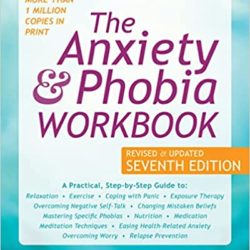June 15, 2020
Ways to Relieve Stress & Build Resilience
Written by Rachel Eddins
Posted in Stress Management and with tags: Anxiety, self care, stress management

Stress is a normal part of life. At times, however, events put our stress levels on high alert for an extended period of time. The responses to stress are as numerous as are the approaches to dealing with and reducing stress.
We can respond to stress in a self-harmful way or a resilient way. For example, we can respond to traffic with hostility or irritation or we can use the time to reflect or catch up on a podcast we’ve been wanting to listen to.
Identify ways to relieve stress that you are likely to maintain. To cope with extended periods of stress, stress-relieving strategies need to be part of your daily routine.
Think about what things need to be in place on a regular basis for you to perform at your best. Everyone gets overwhelmed from time to time, but prevention is the key! What works for you?
The primary ways to relieve stress are to be clear about what you need, take responsibility for your own thoughts and behaviors, develop realistic expectations, have appropriate boundaries, express yourself honestly, take regular, brief relaxation breaks and take care of yourself physically.
Here are some suggestions to consider to identify your own ways to relieve stress.
Add some of these methods for coping with stress to your daily routine and take a few minutes throughout the day to rejuvenate and relieve stress.
Ways to Relieve Stress #1: Practice Deep Relaxation
Relaxation techniques reverse the fight or flight response. Practicing some form of relaxation daily relieves stress, decreases tension, improves health and prevents the development of cumulative stress.
1. Learn to relax.
Throughout the day, take “mini-breaks.” Incorporate any of the brief strategies listed here. Take a mini-break before and after any big task and at regular times to break up mental stress. Be sure you are actively relaxing during your break vs. numbing or checking out in order to receive the anti-stress benefits.
2. Deep slow diaphragmatic breathing.
Before reacting to the next stressful occurrence, take three deep breaths and release them slowly. For each breath, inhale deeply, feeling your stomach expand. Hold your breath for a few seconds, then slowly exhale, visualizing tension leaving your body.
At the same time, let your shoulder muscles droop, smile, and say something positive like, “I am r-e-l-a-x-e-d.” Be sure to get sufficient rest at night.
Stress often causes us to breathe shallowly, and this in turn almost always causes more stress. Mentally scan your body for physical tension. Does your chest feel tight? You may be holding your breath without even knowing it. Shallow breathing puts less oxygen in the blood stream, producing an increase in muscle tension.
You may experience headaches; you may feel more anxious and uptight. The next time you feel “uptight,” try taking a minute to slow down and breathe deeply. Breathe in through your nose and out through your mouth. Try to inhale enough so that your lower abdomen rises and falls. Exhale slowly. This is one of the techniques of stress management that you can do at any time.
3. Meditation.
Practice meditation as a way to let go of tension and anxiety. Meditation is one of the most effective ways to relieve stress long-term. Meditation practice helps to calm the mind and create a deeper sense of calm.
Close your eyes and mentally follow your breathing. When you notice yourself distracted in thinking, without judgement refocus yourself again on your breath. As you exhale, repeat a simple or soothing word with each breath. Do this for at least five minutes.
Exercises: Mindfulness & Meditation Exercises to Start With
4. Visualization.
Close your eyes and imagine a place where you feel relaxed and comfortable. Notice all the details of your chosen place, including pleasant sounds, smells, and temperature. After 5-10 minutes, slowly open your eyes and stretch.
5. Progressive Muscle Relaxation.
This is one of the most effective ways to relieve stress from your body. While sitting in a relaxed position, tense the muscles of your feet as much as you can; then relax them and notice the difference in the feeling. Continue this process of tensing and relaxing all the way up your body until you reach your head.
6. Stretch.
Sit in a chair with your upper body resting forward on your lap. Slowly roll up, starting at the base of your spine, until your back is straight. Stretch neck muscles by tilting your head to the right and slowly rolling your head down and to the left. Repeat a few times in both directions.
7. Self-massage.
Sit with your shoulders relaxed. Use your right hand to massage your left shoulder and neck, working your way up to the scalp. Repeat using the left hand for the right shoulder.
If stress causes to eat crunchy foods, then you likely carry tension in your jaw muscles. Take some time to massage your jaw muscles the next time you have the urge to crunch.
7. Speak slowly – Whenever you feel overwhelmed by stress, practice speaking more slowly than usual. Speaking slowly is one of the methods for coping with stress which leads you to think more clearly and react more reasonably to stressful situations. Stressed people tend to speak fast and breathlessly; by slowing down your speech you’ll also appear less anxious and more in control of any situation.
Ways to Relieve Stress #2: Watch Your Thinking
The mind plays a powerful role in coping with stress. Because cognitions or mental processes have a strong influence on physical and emotional reactions to stress, it’s important to address the way you think.

What we think and believe ultimately shows up in our life. Our behavior is largely determined by the words we use. If our thoughts about ourselves and our abilities are negative, we tend to overlook the positives and the potential. We actually hypnotize ourselves to behave as we think. Every word we repeat and believe tends to shape what we become.
One of the most powerful ways to relieve stress is to change your thinking. In particular:
1. Managing Expectations.
What a person believes will happen. or expects to happen can influence their behavior that makes the outcome more likely to happen. Negative expectations increase anxiety and stress. Facing challenges with optimism facilitates positive ways to relieve stress.
2. Self-talk.
Replace negative mental responses to stress such as “I can’t handle this,” with positive ones such as “Everything is going to work out,” or “I know I can do it.”
3. Controlling & Perfectionistic Behavior.
Watch out for perfectionism. Perfectionism and unrealistic expectations go together. These behaviors are frequently an effort to avoid abuse, conflict, the unknown, or a feeling of inadequacy. Focus on developing realistic expectations for yourself and accept that you have no control over the behavior of another.
Remember, everyone makes errors. Be careful of procrastination – breaking tasks into smaller units and prioritizing will help get things done.
4. Practice Acceptance & Reframe the Situation.
Many people get distressed over things they won’t let themselves accept. Often these things that can’t be changed, like someone else’s feelings or beliefs. If something unjust bothers you, that is different. If you act in a responsible way, the chances are you will manage stress effectively.
If you choose to accept a situation you cannot change, you may be able to reframe what’s bothering you. Reframing what we say to ourselves is one of the most effective ways to relieve stress.
5. Know Your Limits.
A major source of stress is people’s efforts to control events or other people over whom they have little or no power. When confronted with a stressful situation, ask yourself: is this my problem?
If it isn’t, leave it alone. If it is, can you resolve it now? Once the problem is settled, leave it alone. Don’t agonize over the decision, and try to accept situations you cannot change.
There are many circumstances in life beyond your control including, in particular, the behavior of others. Know your limits. If a problem is beyond your control and cannot be changed at the moment, don’t fight the situation. Learn to accept what is, for now, until such time when you can change things.
6. Talk Rationally to Yourself.
What we say to ourselves in response to a particular situation can affect our mood and feelings. Consider, for example, two people reacting to the same unpleasant event.
Suppose the first person thinks, “This is a catastrophe, and I’ll never be able to deal with it,” while the other thinks, “This is unpleasant, but I have some skills and resources to cope with it.” The second person is likely to experience significantly less tension, anxiety, and stress than the first.
7. Be Here Now.
Reliving the past and worrying about the future clutters the space that is to be lived now. Let go of past regrets and resentments.
|
|
The following self-talk guidelines can be effective when reducing anxiety, tension, and fatigue:
- The first step is to become aware that you are engaging in negative self-talk. Often uncomfortable feelings, such as anxiety or guilt, are clues that a person is engaging in negative self-talk.
- Try to identify some of the negative statements you have been saying to yourself. It is sometimes helpful to ask, “What am I telling myself that is making me feel this way?” You might first ask, “What have I been feeling?” Then ask, “What thoughts were going through my mind to cause me to feel that way?”
- Do some “rational questioning” to try to discover logical errors in your negative statements. For example, ask the following questions: “What is the evidence for this?” “Am I looking at the whole picture?” “Am I being fully objective?”
- Try to come up with positive, supportive statements to counter the negative statements. Repeat the positive statements or affirmations over and over again. Examples of affirmations are, “I have the skills and resources to help me handle this situation” and “I have survived more difficult events in the past, and I will survive this one.”
Can you identify the negative beliefs that you are using? How are they affecting your life? In what way could they be affecting your health? Your success? Your relationships with others?
Essentially, negative thoughts are negative affirmations. Look at how you can use positive affirmations to counteract negative thinking.
Ways to Relieve Stress #3: Identify Your Needs
When you catch yourself feeling overwhelmed, frazzled, and needing to relieve stress, etc., slow down, quiet yourself, and ask, “What do I really need right now?”
 Most times our initial response might be something like, “I need less stress in my life!” From there, continue to ask yourself follow-up questions like, “What does that mean exactly? What does that look like? What does that feel like? What does that entail? How might that be achieved?”
Most times our initial response might be something like, “I need less stress in my life!” From there, continue to ask yourself follow-up questions like, “What does that mean exactly? What does that look like? What does that feel like? What does that entail? How might that be achieved?”
Needs are often a/an:
- Emotional need: to feel accepted, supported, or heard.
- Tangible need: more help around the house or certain resources/tools at work.
- Environmental need: more peace and quiet or more comfort.
- Psychological need: to treat ourselves with kindness, compassion, and forgiveness.
- Wellness need for play, adventure, self-care, connection, etc.
It’s helpful to clarify your needs and to be as specific as possible. Breaking things down into easily manageable action steps can help keep us from feeling even more overwhelmed than we already do when we’re experiencing stress.
Ways to Relieve Stress #4: Use Humor to Beat Stress
1. Choose to use humor. Recognize that you do choose your emotional response.
2. Look for humor because it is everywhere. Make it a habit to look for the humorous stuff out there.
3. Focus on the positive. Stop all criticism now! Whether it’s YOURSELF, others, loved ones, parents, children, administrators, coworkers, random people. Stop criticizing situations. You can find lots of stuff to complain about. On the other hand, there’s lots going right as well. Decide to focus on the good.
4. Practice your laugh daily. Take time each day to smile (do it right now!). Laugh out loud, or do something that will make you laugh, such as watching a comedy.
5. Do something silly. Silly comes from the word, “selig” which means happy, healthy, blessed and prosperous. Not so bad!
6. Save cartoons you like and post them where you can see them and catch a smile each day.
7. Celebrate! Look for and celebrate the small daily successes that each and every one of us have. This tool will help keep you motivated, increase your morale and energy.
8. Practice! Having fun to relieve stress can be hard work, but the benefits are worthwhile. Keep practicing.
Ways to Relieve Stress #5: Connect with Others
Reach out and ask for support. Daily doses of conversations, regular social engagement and occasional sharing of deep feelings and thoughts can reduce stress. Bottled up emotions increase stress and frustration. Talking with someone else can help you clear your mind of confusion so you can focus on problem solving.
Who would you ask for help if you weren’t afraid to?
How would you feel if someone asked you for this same help?
Learn to Have Healthy Relationships
- Identify the sources of stress in your relationships. Write about them in a journal. Make a list of people who cause you stress and explore what the issues are. Some sources of stress can be addressed directly.
- Resolve the underlying issues. For each of the situations identified in step 1, assess what needs to happen to resolve it. Make a list and design a plan to improve the situation.
- Learn skills to improve relationships. Relationship skills are learned. We are not born knowing how to get along well with others, and most of us learned only limited skills from our parents. Identify the skills you need to develop, and make a plan for yourself. You can learn theses skills by reading books, taking classes, or working with a therapist.
- Avoid toxic people and situations. Some people have a toxic effect on you. If you can, limit the amount of time you spend with them. Look for opportunities to decline their invitations. When these people are family members, remind yourself that you don’t have to feel guilty about avoiding anyone who makes you feel bad about yourself.
- Seek out positive people and situations. This step is the reverse of the previous step. Look for opportunities to spend more time with people and in situations that make you feel good. Think about people who make you feel good about yourself and look for ways to increase time with them.
Ways to Relieve Stress #6: Practice Daily Self-Care
1. Watch what you eat. Some substances amplify the stress response.
These include:
- Caffeine stimulates the release of stress hormones. This increases heart rate, blood pressure, and oxygen to the heart.
- Refined sugar and processed flour are depleted of needed vitamins. In times of stress, certain vitamins help the body maintain the nervous and endocrine systems.
- Too much salt can lead to excessive fluid retention. This can lead to nervous tension and higher blood pressure. Stress often adds to the problem by causing increased blood pressure.
- During times of high stress, eat more complex carbohydrates (fruits, vegetables, whole breads, cereals, and beans).
|
|
2. Get Moving.
The human body was designed to be physically active. However, people are sitting down most of the time. When faced with stressors, we respond with our minds, not our bodies, yet much of the effects of stress are built up in our bodies. What’s needed is a way to discharge stress from the body.
Exercise is one of the simplest and most effective stress management strategies. The activity provides a natural release for the body during its fight-or-flight state of arousal. After exercising, the body returns to its normal state of equilibrium, and one feels relaxed and refreshed.
3. Get outdoors for a brief break.
Our grandparents were right about the healing power of fresh air. Even five minutes on a balcony or terrace can be rejuvenating.
4. Drink plenty of water and eat small, nutritious snacks.
Hunger and dehydration, even before you’re aware of them, can provoke aggressiveness and exacerbate feelings of anxiety and stress.
Seek Out Help When Things Feel Overwhelming
Experiment with your own stress management strategies. Pay attention to times when you feel more at ease, less overwhelmed, or less “stressed”. What were you doing/not doing? What was different? Dig deeper and find out what was working for you.
If you are experiencing chronic stress, work stress, or just need help coping with stress in your life, consider our Stress Counseling Services. Our therapists are available for face to face sessions as well as online therapy sessions.
To get started now give us a call to schedule an appointment at 832-559-2622 or schedule an appointment online.
Recommended Reading:
The Relaxation and Stress Reduction Workbook
Each chapter features a different method for relaxation and stress reduction, explains why the method works, and provides on-the-spot exercises you can do to apply that method when you feel stressed.
 The Anxiety and Phobia Workbook
The Anxiety and Phobia Workbook
Grounding & Self Soothing
Get instant access to your free ebook.
7 Mood-Boosting Tips
Get instant access to your free ebook.
Why You Feel This Way
Get instant access to your free ebook.
Create Healthier Thoughts & Feelings
Get instant access to your free ebook.
















